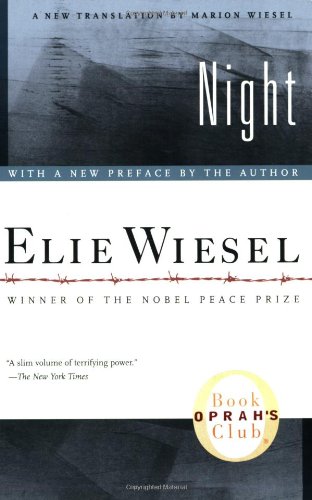All Nonfiction
- Bullying
- Books
- Academic
- Author Interviews
- Celebrity interviews
- College Articles
- College Essays
- Educator of the Year
- Heroes
- Interviews
- Memoir
- Personal Experience
- Sports
- Travel & Culture
All Opinions
- Bullying
- Current Events / Politics
- Discrimination
- Drugs / Alcohol / Smoking
- Entertainment / Celebrities
- Environment
- Love / Relationships
- Movies / Music / TV
- Pop Culture / Trends
- School / College
- Social Issues / Civics
- Spirituality / Religion
- Sports / Hobbies
All Hot Topics
- Bullying
- Community Service
- Environment
- Health
- Letters to the Editor
- Pride & Prejudice
- What Matters
- Back
Summer Guide
- Program Links
- Program Reviews
- Back
College Guide
- College Links
- College Reviews
- College Essays
- College Articles
- Back
Night by Elie Wiesel
“All roads lead to Rome” it means that there are different ways to attain a single goal but it originated from the idea that many roads, during the empire, led back to Rome. There is a similar saying from World War Two: “All roads lead to Auschwitz.” All six books touch Auschwitz in some way. The memoirs of the survivors all pass through Auschwitz, the play refers to the second Auschwitz trials, and the memoir of the SS Kommandant is the Nazi commander in Auschwitz. Night follows Elie Wiesel as he is taken from his home of Sighet and taken to the Auschwitz concentration camp with his father. Much of the story focused on Wiesel and his father’s relationship and how it developed through the horrors of the Holocaust. Wiesel did not remain in Auschwitz until liberation like Primo Levi had but instead was part of what are now known as the Death Marches. Wiesel ends up in Buchenwald, where he remains until the prisoners revolted and took control of the camp.
Wiesel’s Night shares some similarities in content with Primo Levi’s Survival in Auschwitz, but that is where the similarities end. The major difference in their writing lies in the more artistic approach of Elie Wiesel. Where Primo Levi has a practical and pragmatic way of presenting his story to the readers Elie Wiesel is significantly more emotional and impressionable. Wiesel’s memoirs are more of a story than Levi’s. It must also be noted that not everything Wiesel wrote in his book is exactly as the events happened in reality. Wiesel takes some artistic liberties throughout his book and it is not clear as to why he does this. In many instances he adds tension and symbolism to events in the story. It does not seem like this should have been necessary but it is how he wrote the story. One thing that cannot be denied is that Wiesel actually did go through the Holocaust and so this really is a survivor’s story.
Night is in part a coming of age story because of how young Wiesel was when he went into the camps but explaining coming of age within the context of the concentration camps. There are plenty of symbols throughout the book, not the least of which is the idea of the night. Wiesel’s story is a very quick read and is the more entertaining read of the two books I have thus far reviewed. One major similarity between the two books that deserves to be acknowledged is the endings. Both stories end somewhat abruptly and do not give the reader what we would consider a logical conclusion. Almost all of the books did this. Whether or not this is a symbol for the ongoing struggle of dealing with the trauma of the Holocaust falls to personal interpretation I suppose, but it is not too far a stretch to believe that this implies that maybe the survivors really never left at all.
Final Verdict:
Night is arguably the most accessible of the six books I will review. The writing style is more understandable and the events of his memoirs are written in a way that is more conventionally “acceptable.” Still Levi’s Survival in Auschwitz was my favorite, if that can even be said, of the stories that we read.
Again I think that this is a book that everyone should read. I do not necessarily think that every person should read every Holocaust book there is, that would be near impossible, but Survival in Auschwitz and Night are two of the most famous Holocaust memoirs for a reason.
Favorite Quotations:
There are many poignant quotations that really struck me so instead of one here are three:
“The Yellow Star? So what? It’s not lethal…”
(Poor Father! Of what then did you die?)
The ghetto was ruled by neither German nor Jew; it was ruled by delusion.
From the depths of the mirror, a corpse was contemplating me
The look in his eyes as he gazed at me has never left me.
Similar Articles
JOIN THE DISCUSSION
This article has 3 comments.


9 articles 0 photos 39 comments
Favorite Quote:
"Our remedies oft in ourself do lie, which we ascribe to heaven."<br /> -William Shakespeare